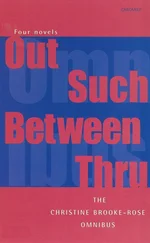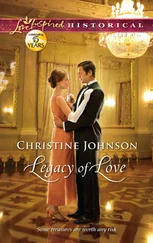Christine Brooke-Rose - Life, End of
Здесь есть возможность читать онлайн «Christine Brooke-Rose - Life, End of» весь текст электронной книги совершенно бесплатно (целиком полную версию без сокращений). В некоторых случаях можно слушать аудио, скачать через торрент в формате fb2 и присутствует краткое содержание. Год выпуска: 2012, ISBN: 2012, Издательство: Carcanet Press Ltd., Жанр: Современная проза, на английском языке. Описание произведения, (предисловие) а так же отзывы посетителей доступны на портале библиотеки ЛибКат.
- Название:Life, End of
- Автор:
- Издательство:Carcanet Press Ltd.
- Жанр:
- Год:2012
- ISBN:9781847775726
- Рейтинг книги:5 / 5. Голосов: 1
-
Избранное:Добавить в избранное
- Отзывы:
-
Ваша оценка:
- 100
- 1
- 2
- 3
- 4
- 5
Life, End of: краткое содержание, описание и аннотация
Предлагаем к чтению аннотацию, описание, краткое содержание или предисловие (зависит от того, что написал сам автор книги «Life, End of»). Если вы не нашли необходимую информацию о книге — напишите в комментариях, мы постараемся отыскать её.
by a master of experimental novels finds the author reflecting on her old age and its effects on her writing. As she reflects on her own career, her experiments with narrative, and on the narrative she writes here, she ultimately reasserts herself and accepts the life behind her.
Life, End of — читать онлайн бесплатно полную книгу (весь текст) целиком
Ниже представлен текст книги, разбитый по страницам. Система сохранения места последней прочитанной страницы, позволяет с удобством читать онлайн бесплатно книгу «Life, End of», без необходимости каждый раз заново искать на чём Вы остановились. Поставьте закладку, и сможете в любой момент перейти на страницу, на которой закончили чтение.
Интервал:
Закладка:
Even building a wall –
Called a fence –
Only so as not to recall Berlin, but recalling it just the same. Now it’s a partition.
They have a son Jesse doing his National Service who refuses to be sent to the Occupied Territories. This is allowed, and respected. And a seventeen-year-old daughter Abigail who wants to be literary but will also have to spend two years in the army. Just like the invalid’s own war at sixteen. Rebekah is born there, descended from early secular-socialist arrivals. Dan is an American immigrant of the 70s, now speaking perfect Hebrew.
The miracle. Produced by men and women not God. Recalling the visit to independent Ireland fifty years ago, full of Celtic twilight and romance but deeply disappointed to see the English pound still used, bacon and eggs still eaten and Erse unspoken. The Professor of Gaelic in Cork University has five students. Erse is obligatory for the Civil Service but never used. A few women on the West coast are paid to bring up their children in Erse. Today not even that. No point, they say, adding yet another language to international conferences. Or laziness? Is that how races disappear? Such thoughts silently descant the conversation.
In contrast, a parallel case, Lithuania. Six centuries part of Poland until 1918, all talking Polish. A few old men out of the backwoods, the frontier closed, strong will all round at all levels, the impossibility of buying even a stamp except in Lithuanian. The oldest Indo-European language. And twenty years later, when the frontier reopens, nobody speaks Polish. A man-made miracle. Like Hebrew.
And the Basques. Vasco de Charmer here. Basque is pre-Indo-European even. Linked to no other. But not in the way Finnish and Hungarian are non-Indo-European yet traceable in their interlinks and in movements of peoples. The origin of Basque may not be linguistically traceable because utterly remote. But DNA research has shown an impressive continuity beween today and the Homo Sapiens Cro-Magnon vestiges, over the entire Basque areas in France and Spain, more extended then. At least the results suggest more of a resistance to infiltration than an expansion. So the Basques represent the remains of a pre-Celtic hegemony of sorts, going back forty thousand years, even sixty if traced back to the Middle East, and more to the African Exodus, anyway long before the so-called barbarian invasions of Huns, the Visigothic, the Ostrogothic, Lombard, Frankish, Anglo-Saxon, Viking conquests. For that matter even longer ago before the Sumerian, Egyptian, Babylonian, Minoan, Shang, Assyrian, Ch’in, Phoenician, Achaemenid, Greek, Olmec, Toltec, Mayan, Macedonian, Celtic, Carthaginian, Roman, Han, Aztec, Parthian, Sung, Yamato, Gupta, Sasanian, Islamic, Turkic, Tibetan, Byzantine, Mongol, Ming, Carolingian, T’ang, Temur-i-lang, Holy Roman as opposed to Unholy, Ottoman, Venetian, Inca, Egyptian, Malaccan, Uzbek, Habsburg, Moscovite, Manchu, Jürchen, Tokugawa, Russian, Safavid, Portuguese, Spanish, Dutch, Swedish, British, Napoleonic, Belgian, French, German, Soviet, Japanese, American empires. All have crumbled, only the last lasts, and will crumble also. Meanwhile destroying all non-them.
The Basques are not empire-builders but hunter-gatherers cave-painters and early exchangers. The Basques are now split over two nations, like the Kurds over three. Such splits are politically stupid. Neither has merged or absorbed sufficiently to disappear, nominally. Like the Franks, the Lombards. Should the Basques not be granted their own state today? Without violence? The real European ancestors.
But then, returning from this mental threnody whose mere bits and pieces punctuate the conversation, isn’t that draining the past to whip up present violence? As Rebekah says of Israel. There’s now talk of identity again, so long after the non-belonging fashion of the 70s, but now rerooted.
Is identity acquired through language, through land, through length of time, through legend?
Plenty of individuals, especially of conquered nations, have two or three languages, two or three land loyalties, but these never have two religions, except concealed, and even that means learning about the other.
Perhaps. Though I read somewhere that Bangladeshis in England tend to become waftingly multi-faithed, but that’s probably exceptional. And religions used nationalistically become myths, while their institutions create rites. Sometimes there’s little left in any of them except feasts and forbidden foods.
I don’t know. It seems that religion as such, pure faith in something, is winning everywhere. Or perhaps what wins is astrology, sects, football and so on.
And in any case can the whole world attain bi-tri-lingualism and plural origins as a solution, if it is one? The solution won’t come from individual ex-patriots, especially if the ex- of expatriots is felt as loss, not merely away from. As for immigrants, theoretically bi-lingual as you point out, that has merely led to deeper nationalisms, and fundamentalism.
That leaves legend then. It’s hard to believe.
Well, there’s race.
And power.
Lord yes. Power manipulates all the previous.
Rebekah also has a disability, so that deep empathy flows and no O.P.ishness is possible. Her handicap is an equally local nervous ailment, therefore rich in mutual understanding: the eyelids closing uncontrollably at various times of the day so that she can’t see and has to lie down and take a pill. True, it’s less visible or easier to conceal than a cripple’s difficulties, or else she rules over it more efficiently. It’s also only one ailment, however difficult. And she has a gentle and attentive husband. She can still teach, with an assistant who records texts for her. She can still travel. And write. She is the author of the scholarly article called Ill Locutions in which one handicapped witness says that disability and dolor are not the main problems of the disabled, O.P.s are. But this has been too much intercommented by phone and e-mail to be discussed here. It surfs in the background, however, like the empires and lost languages. Are these two nervous diseases linked, legs or lids, as not from the central nervous system, that is, not the far more agonising Creutzfeldt-Jakob, but from the peripheral? Brains still eager? This is not discussed either.
Eager for what? For all that goes on slalom-like between intelligent people, all that is written, read, sung, pictured, thought. A discourse that zigzags like blood pressure, changing registers, personal one moment, metaphysical the next, philosophical, catty, humourous, technical on the disciplines shared, frivolous, rhetorical, witty, political, historical, personal again. Rather than just one register alone, me me me my husband my children my garden my dog. The scenic railway conversation is rare, so rare. As here, all day, above the thoughts leading off from Hebrews to Lithuanians to Basques to empires, thoughts that nevertheless orchestrate. As now. The topic shifts, from listening role to participant’s.
Then something happens. The discreetly lit restaurant garden darkens, the cicadas chatter hysterically in the pine-trees. Dan’s slow low voice murmurs, interrupted by Rebekah’s, clearer and better articulated, like a good teacher’s.
Oh don’t go into all that again, it’s not the way you say, as I demonstrated recently.
There seems to be some inner tension between them, unknown earlier. Due to her handicap? Dan gives in at once. Followed by an attempted neutralisation by the other disabled.
But couldn’t it just be a different –
Rebekah continues as if unhearing.
This astonishing new pattern recurs all evening. Two low voices, each regularly interrupted by the clearer one, perhaps excited by the national narrative, the male low voice, probably also interrupted, because unheard, and the female low voice, also unheard. The subject changes. The invalid’s voice is raised, as if remembering, once long ago, at the BBC, Speak up, you say you like this book. Then trying to sound like the Queen, or Vanessa Redgrave, and, just before the second career starts, as teacher, taking lessons in voice-production, out of the stomach not the chest, then through the head, the head is a resonance-box. On stage even a murmur should be heard in the gods. And as for teaching the voice must not be a murmur into the lecture notes, as with so many, but projected to the back of the room. Sound versus graphism, as ever. And now, a return to murmur. The conversation changes, at least in pattern:
Читать дальшеИнтервал:
Закладка:
Похожие книги на «Life, End of»
Представляем Вашему вниманию похожие книги на «Life, End of» списком для выбора. Мы отобрали схожую по названию и смыслу литературу в надежде предоставить читателям больше вариантов отыскать новые, интересные, ещё непрочитанные произведения.
Обсуждение, отзывы о книге «Life, End of» и просто собственные мнения читателей. Оставьте ваши комментарии, напишите, что Вы думаете о произведении, его смысле или главных героях. Укажите что конкретно понравилось, а что нет, и почему Вы так считаете.












